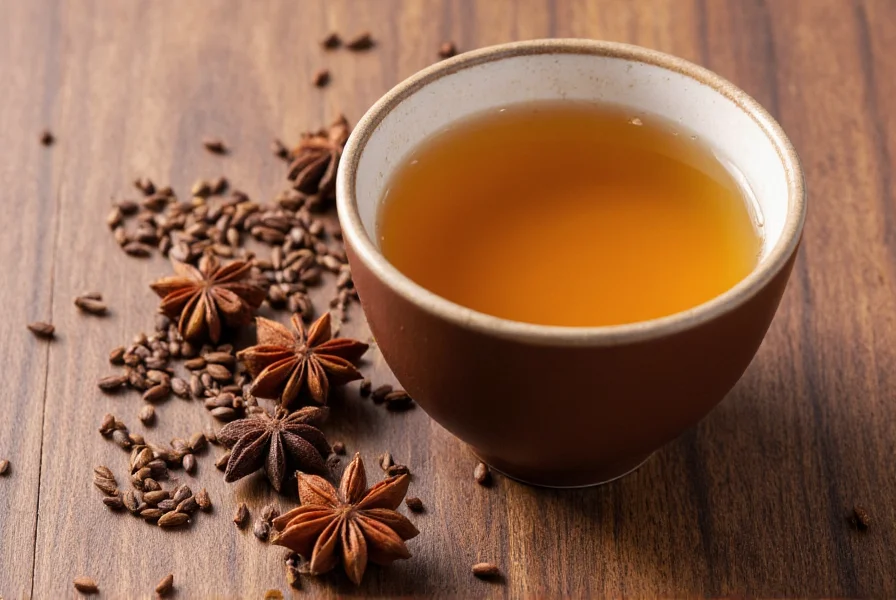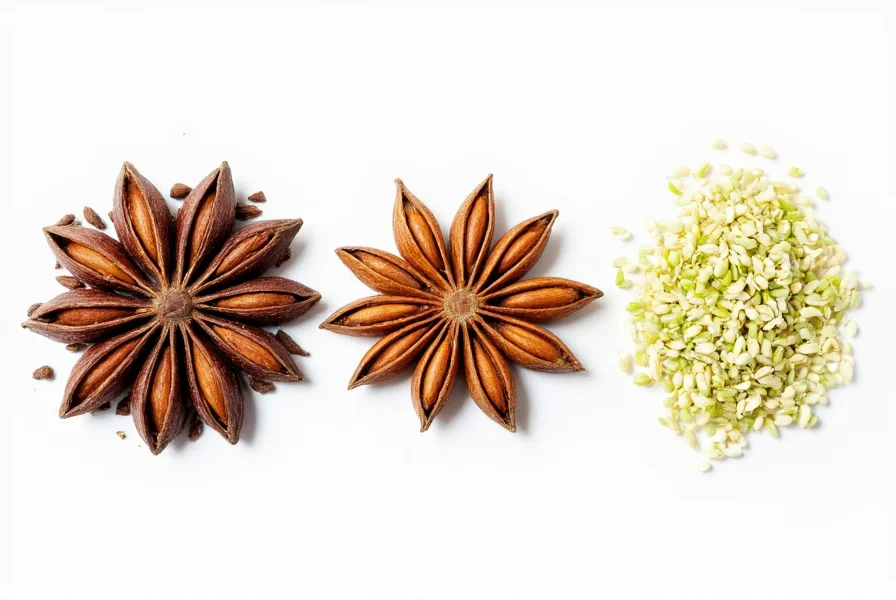
Understanding Anise Tea and Its Traditional Uses
Anise tea, made from the seeds of Pimpinella anisum, has been used for centuries across Mediterranean and Middle Eastern cultures. Unlike star anise (which comes from a different plant), true anise seeds contain anethole, the compound responsible for its distinctive licorice-like flavor and many of its potential health effects. When exploring the benefits of drinking anise tea for digestion, historical records show ancient Egyptians and Romans valued it for soothing stomach discomfort.
Science-Backed Health Benefits of Anise Tea
Modern research provides insight into why drinking anise tea for digestive issues remains popular. A 2020 review in Phytotherapy Research highlighted anise's antispasmodic properties that may help reduce intestinal cramping and bloating. The tea's carminative effects make it particularly valuable as a natural remedy for gas relief after meals.
| Documented Benefit | Scientific Support Level | Recommended Consumption |
|---|---|---|
| Digestive support | Strong clinical evidence | 1-2 cups after meals |
| Respiratory relief | Moderate evidence | 2-3 cups when symptoms appear |
| Antioxidant properties | Preliminary research | Regular moderate consumption |
| Sleep improvement | Limited evidence | Evening consumption |
How to Prepare Anise Tea Properly for Maximum Benefits
Understanding how to make anise tea correctly affects its potency and safety. For optimal extraction of beneficial compounds without releasing excessive volatile oils:
- Use 1-2 teaspoons of crushed anise seeds per 8 ounces of water
- Bring water to just below boiling (195°F/90°C)
- Pour over seeds and steep covered for 5-7 minutes
- Strain immediately to prevent over-extraction
Many people wonder whether drinking anise tea cold or hot makes a difference. While temperature doesn't significantly alter the chemical composition, warmer tea may provide more immediate relief for digestive issues due to thermal effects on the gastrointestinal tract.
Safety Considerations and Potential Side Effects
When discussing the safety of drinking anise tea regularly, several factors require attention. The European Medicines Agency notes that while anise tea is generally safe, excessive consumption (more than 3 cups daily) may cause:
- Mild nausea or dizziness in sensitive individuals
- Possible interactions with certain medications
- Rare allergic reactions, particularly in those sensitive to plants in the Apiaceae family
Special caution applies when considering drinking anise tea while pregnant. Due to its potential estrogenic effects, pregnant women should consult healthcare providers before regular consumption, as high doses may stimulate uterine activity.
Anise Tea vs. Similar Herbal Remedies
Many consumers confuse anise with star anise or fennel. Understanding the differences between drinking anise tea versus star anise tea is crucial:
- True anise (Pimpinella anisum) - Grown in Mediterranean regions, contains anethole
- Star anise (Illicium verum) - Comes from China, contains shikimic acid (used in Tamiflu)
- Fennel (Foeniculum vulgare) - Different plant with similar flavor profile
While both anise and star anise offer digestive benefits when consumed as tea, they have different chemical compositions and potential effects. This distinction matters particularly when exploring drinking anise tea for specific health conditions.
Practical Guidelines for Incorporating Anise Tea
For those interested in drinking anise tea for weight loss, current evidence doesn't support significant metabolic effects. However, replacing sugary beverages with anise tea may support healthy habits. The most established benefits relate to digestive health and respiratory comfort.
When selecting quality anise for tea preparation, look for:
- Fresh, aromatic seeds (should smell sweet and licorice-like)
- Organic certification to avoid pesticide residues
- Proper storage in airtight containers away from light

When Anise Tea Might Not Be Appropriate
Certain populations should exercise caution with anise tea consumption. People taking blood thinners should consult doctors before drinking anise tea regularly, as preliminary research suggests possible interactions. Those with hormone-sensitive conditions should also seek medical advice due to anise's phytoestrogen content.
The question of how much anise tea is too much depends on individual factors, but most experts recommend limiting consumption to 2-3 cups daily for general wellness purposes. Understanding proper dosage for drinking anise tea medicinally requires professional guidance.
Frequently Asked Questions
Can drinking anise tea help with menstrual cramps?
Some studies suggest anise tea may help reduce menstrual discomfort due to its antispasmodic properties. A 2016 study in Complementary Therapies in Medicine found women who consumed anise extract experienced reduced pain intensity compared to placebo. However, more research is needed specifically on tea preparation, and those with hormone-sensitive conditions should consult their healthcare provider first.
How does drinking anise tea affect sleep quality?
Anise tea may promote relaxation and improve sleep quality for some individuals due to its mild sedative properties. The warm beverage can be part of an effective evening routine, though scientific evidence specifically linking anise tea to significant sleep improvements remains limited compared to other herbal teas like chamomile.
Is it safe to drink anise tea every day?
For most adults, drinking anise tea daily in moderate amounts (1-3 cups) is considered safe. Long-term safety data is limited, so cycling herbal teas or taking periodic breaks may be prudent. People with specific health conditions or taking medications should consult healthcare providers about regular consumption.
Can children drink anise tea safely?
Anise tea is generally not recommended for children under 6 years old due to limited safety data. For older children, small amounts (¼ to ½ cup) may be used occasionally for digestive issues, but consultation with a pediatrician is advised before regular use, especially since some traditional preparations contain honey which isn't safe for young children.
Does drinking anise tea interact with medications?
Anise may interact with certain medications, particularly blood thinners and hormone therapies, due to its coumarin content and phytoestrogen effects. While typical tea consumption likely poses minimal risk, individuals taking prescription medications should consult their healthcare provider or pharmacist about potential interactions before regular consumption.










 浙公网安备
33010002000092号
浙公网安备
33010002000092号 浙B2-20120091-4
浙B2-20120091-4